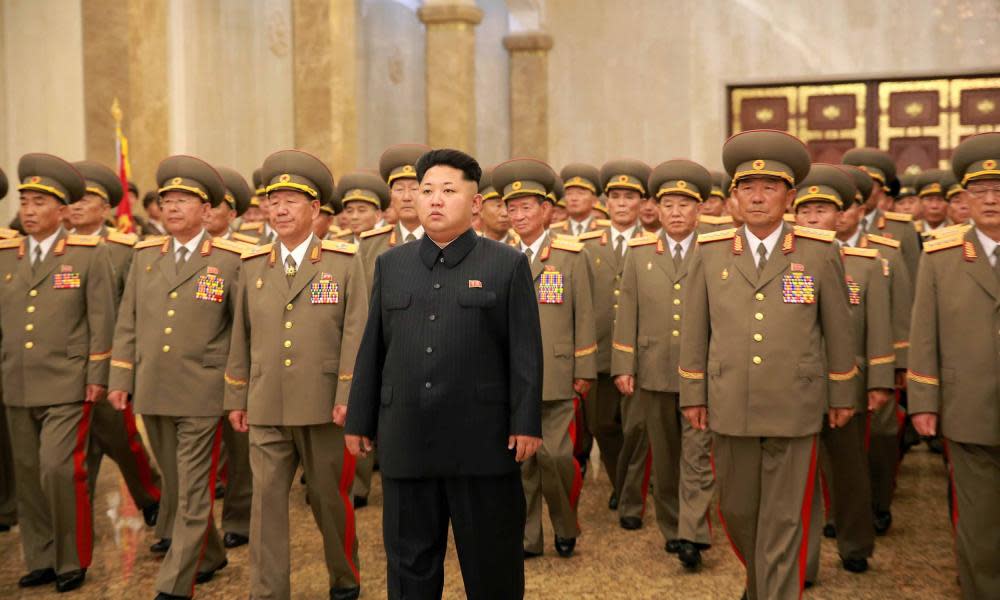The Guardian view on the US and North Korea: warm words, not deeds

North Koreans are used to extracting the most from very little. It is how the country’s people have survived; and how the rulers who impoverished them have always handled international pressure. Even so, Kim Jong-un must be surprised by his success in eking out minimal material. First came the Singapore summit, where he gave nothing and gained much. Relations with the Trump administration soon stumbled, and the International Atomic Energy Agency has said that the North is continuing to develop its weapons programme; yet on Wednesday the US announced that it was ready to immediately restart bilateral talks. Discussions on a second Trump-Kim meeting are under way.
To what effect? To date the two sides appear to have been talking past, not to, each other. The differences were evident in the US decision to halt meetings in July, after Mr Kim snubbed the secretary of state, Mike Pompeo, reportedly believing that Donald Trump was reneging on a promise of a peace declaration.
The disparities were equally glaring in the Trump administration’s enthusiasm about Mr Kim’s summit with South Korea’s Moon Jae-in this week. The US says that the North has committed to completing denuclearisation by January 2021; but the North talks of wanting denuclearisation of the peninsula – not unilateral action. Its promise to dismantle a missile engine test and launch site was first made in Singapore. And while the US says the North pledged to dismantle its nuclear facility at Yongbyon in the presence of inspectors, the North merely said it would take measures “such as” this if there were corresponding moves by the US, and fudged oversight. Underlying these differences is a fundamental contradiction, as the analyst Jung Pak pointed out: the case for US agreement to a peace deal rests upon the assumption that Kim associates peace with him relinquishing nuclear weapons. Yet everything indicates that the North believes peace is possible because it has nuclear weapons.
Mr Trump’s vanity and ignorance may well blind him to this clash, especially at a time when Mr Kim’s fulsome pledges of “unwavering faith” are in welcome contrast to his own team’s disdain. It is hard to believe those around him are so naive. Are they protecting their boss’s ego – or setting a benchmark against which the North will fall short?
The real substance of the Pyongyang meeting was the intra-Korean agreement to unglamorous but potentially critical de-escalation measures, including buffer zones on air, land and sea. While some South Koreans object to their leader literally embracing a dictator, many others are simply relieved to lower the risk of war. And though some in Washington accuse Seoul of undercutting the US, it was Mr Trump who axed “maximum pressure” when he handed Mr Kim the Singapore summit for free. Mr Trump has done more than anyone to prompt China’s Xi Jinping to meet Mr Kim three times this year.
After the threats of fire and fury, the de-escalation is welcome. In the very long haul, a freeze on the North’s nuclear programme, or even its reduction, is not utterly impossible. But it looks less likely than ever with the Trump administration on the other side. Even if the US president’s pride rests on claiming to have solved a crisis he created – and it would be unwise to count on this, given his volatility – his hawkish national security adviser John Bolton might yet convince Mr Trump that he has been cheated. So the questions remain: What more can Mr Kim get without giving real ground? How long can he spin the process out for? What happens then?

 Yahoo News
Yahoo News 
